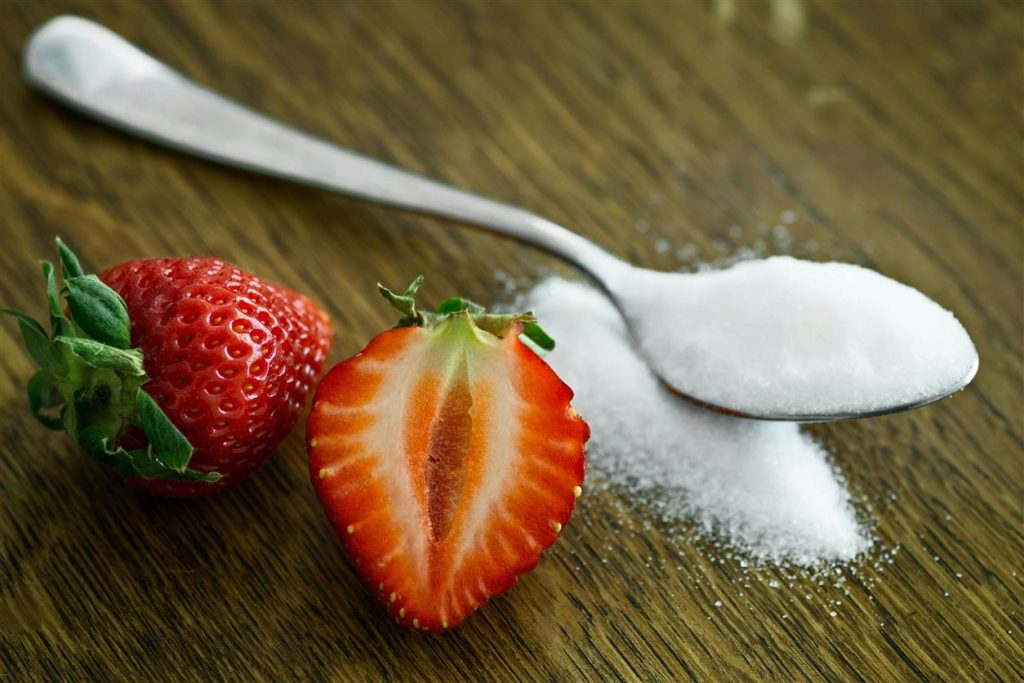
For years, sugar has sat squarely in the nutritional hot seat. Blamed for everything from obesity to diabetes and heart disease, it’s been pushed out of ingredient lists, recipe books, and consumer habits. In its place? An increasingly complex web of substitutes—from plant-based sweeteners to lab-born compounds—all promising the sweet without the sting. But as the world shifts toward “healthier” alternatives, a growing chorus of scientists and health experts are asking a sobering question: Are we solving one problem by creating another?

A Short History of Sweet Substitutes
The search for sugar replacements isn’t new. Saccharin arrived in the late 1800s. Aspartame, acesulfame K, and sucralose followed in the 20th century, with stevia and monk fruit extract gaining popularity in more recent years. These sugar substitutes were primarily marketed to diabetics and dieters, offering calorie-free or low-calorie sweetness without spiking blood glucose.
Today, they’re everywhere: in energy drinks, protein powders, “guilt-free” desserts, protein bars, yogurts, even salad dressings. Marketed as the smarter alternative, these replacements come in many forms—natural, synthetic, caloric, non-caloric—and they have quietly become part of our daily lives. But the health halo surrounding them is starting to flicker.
Health Swap or Health Trap?
At first glance, swapping sugar for non-sugar alternatives seems like a no-brainer. Less sugar equals fewer calories, and fewer calories should mean less weight gain. Right? Not so fast.
Recent studies have raised concerns about how certain sugar substitutes affect metabolism, gut health, and appetite regulation. Artificial sweeteners, while low in calories, may still trigger the body to respond as if it’s consuming sugar—potentially confusing the brain and digestive system in ways that promote cravings or disrupt insulin sensitivity.
For example, aspartame and sucralose have come under scrutiny for their potential impact on gut bacteria. One study found that even small amounts of these sweeteners altered the composition of the gut microbiome in a way that could lead to glucose intolerance. Meanwhile, sugar alcohols like erythritol—often found in keto and low-carb foods—have been linked to bloating, diarrhea, and other digestive issues when consumed in high amounts.
Even natural sweeteners like stevia aren’t without controversy. While derived from plants, the refined extract used in most processed products is far from the raw leaf traditionally used in some cultures. Some research suggests stevia might interfere with hormonal signaling, though findings remain inconclusive.
Sweetness Without Consequence?
Perhaps the bigger issue isn’t the substances themselves—but the idea that sweetness should come without consequence. Many health experts argue that sugar substitutes, regardless of their origin or chemistry, reinforce a preference for hyper-sweet flavors. This keeps our palates primed for sweet foods, whether or not they contain real sugar, and can make naturally less-sweet foods—like vegetables or grains—taste underwhelming.
It also perpetuates the idea that we can have it all: the indulgence without the fallout. But as long as we’re chasing sweetness by any means, are we really escaping the loop of overconsumption?
Regulatory Blind Spots
While many sugar substitutes are Generally Recognized as Safe (GRAS) by food safety agencies, the long-term impacts of consistent, cumulative use remain largely uncharted. The rapid expansion of low-sugar and zero-sugar food products has outpaced the science on what happens when these substitutes are consumed daily for years or even decades.
Furthermore, food labeling can be confusing. Products marked as “no added sugar” may still contain concentrated fruit juices, syrups, or other sweet-tasting ingredients that affect blood sugar similarly. Likewise, terms like “natural sweetener” are often used for marketing rather than clarity, creating a health halo without much transparency.
The Psychological Cost
There’s also an emotional and cultural toll to consider. In the race to sanitize our diets of sugar, food is increasingly viewed through the lens of guilt and control. Dessert becomes a moral choice. A birthday cake isn’t just cake—it’s a test of willpower, unless it’s been made “clean.”
This attitude can foster a disordered relationship with food, where pleasure is suspect and wellness is measured by restriction. When sugar becomes the villain, and its substitutes the savior, we risk turning eating into a battlefield of good and bad choices rather than a nourishing experience.

What’s the Real Alternative?
Instead of asking whether we should replace sugar with something else, a better question might be: Can we reset our expectations for sweetness altogether? This doesn’t mean eliminating it entirely, but learning to enjoy it in moderation—and in context.
Cultures around the world have long traditions of sweet foods—honey-drizzled pastries, spiced chai with sugar, ripe fruit as dessert. The key difference is that these foods are often eaten slowly, socially, and occasionally—not packed into every meal or snack.
Real change may come not from clever substitutes, but from a broader rethinking of what sweetness means in our diets—and what role it should play.
Final Thought
The great sugar swap was born of good intentions: better health, fewer calories, more mindful eating. But as with many health trends, the picture is more complicated than it seems. We may have removed sugar from the label, but the sweetness—and the cravings—persist. If we want to truly shift how we eat, it might require more than replacing ingredients. It may mean redefining what we expect food to be.
Let me know if you’d like this turned into a visual layout, subhead reformatting, or a pitchable headline deck.





